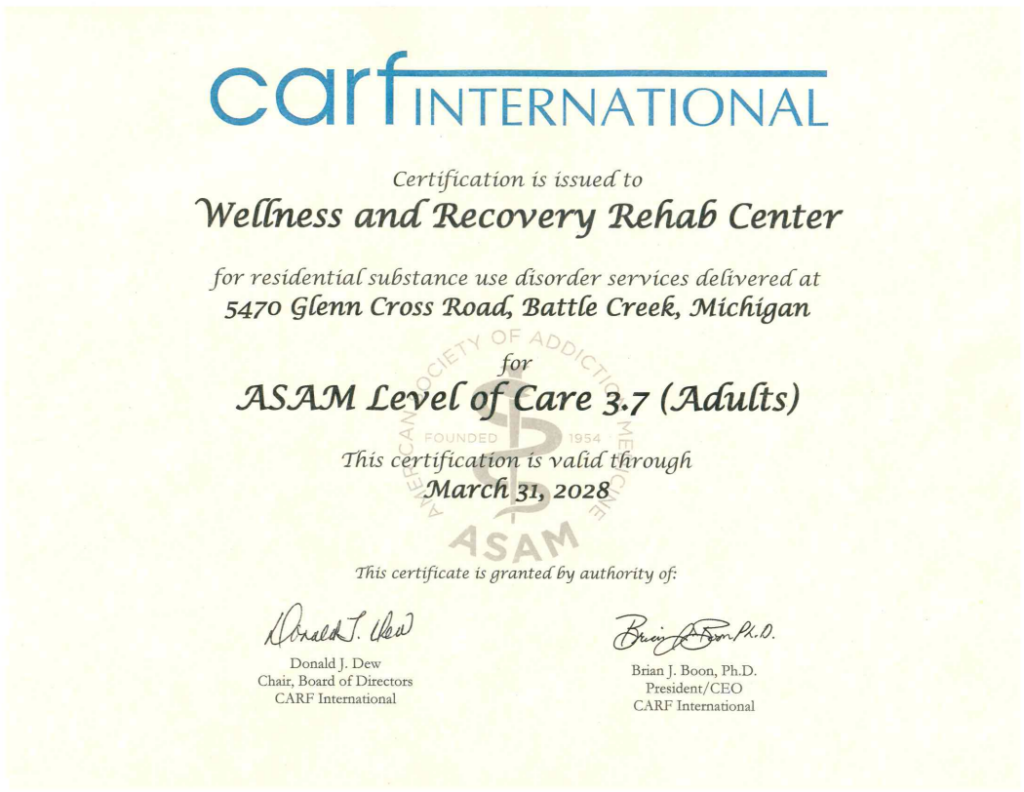The following describes some of the most common side effects during alcohol withdrawal:
Alcohol produces a calming effect by slowing down brain activity. When alcohol use stops, the brain, now accustomed to working harder, struggles to regain balance. This leads to heightened anxiety, agitation, and difficulty relaxing.
Alcohol affects the digestive system and disrupts neurotransmitters that regulate nausea and body temperature. When detoxing, the gastrointestinal system then reacts by producing nausea, vomiting, and excessive sweating. This is the body’s attempt to expel toxins and stabilize internal systems.
Many people use alcohol as a sleep aid, but it disrupts the brain’s natural sleep cycles. Without alcohol, the nervous system remains hyperactive, which makes it difficult to fall and stay asleep. Vivid nightmares are common due to the brain’s attempt to restore REM sleep balance.
Alcohol suppresses the autonomic nervous system, which controls heart rate and blood pressure. Without alcohol, the body goes into overdrive trying to self-regulate. This often leads to spikes in blood pressure and an increased heart rate.
Going through withdrawal without alcohol detox medication and medical supervision can be dangerous. Without professional care, individuals may relapse due to discomfort or cravings.
Without medical intervention, withdrawal complications can become overwhelming. This can lead to relapse before the process is complete.
Other medications, like naltrexone and acamprosate, help control cravings and stabilize brain chemistry. The right combination of medications makes detox safer, more manageable, and less distressing.
Medical assessments help determine the most appropriate alcohol detox medication, but medication alone isn’t enough. Anxiety, depression, and past trauma can significantly impact how withdrawal is experienced. Our approach combines medical detox with other holistic treatment options.
By providing a compassionate, structured environment, we help individuals move through detox safely.
Depending on the severity of the withdrawal process, individuals may be prescribed different alcohol detox medication to best suit their recovery. Navigating alcohol withdrawal can be a challenging process, and medical intervention often plays a vital role in ensuring safety and comfort.
Several medications are commonly used during alcohol detoxification to manage withdrawal symptoms and minimize potential complications. These medications work in different ways to stabilize the body and brain, easing the transition to sobriety.
Different alcohol detox medication options are available, including:
Without alcohol detox medication, withdrawal can feel unbearable, increasing the risk of relapse. Many people who attempt to detox alone find themselves turning back to alcohol simply because their body is struggling to function without alcohol.
Alcohol withdrawal hallucinations happen when the brain’s sensory processing center is dysregulated due to not having the substance. These are among the worst of the symptoms individuals experience, and hallucinations can be visual, auditory, or tactile.
Some examples of hallucinations are as follows:
Hallucinations typically occur within 12-24 hours after the last drink. However, they may last for days if withdrawal progresses without alcohol detox medication.
Alcohol withdrawal seizures usually happen between 6 and 48 hours after the last drink. These seizures can be life-threatening, especially if they lead to complications, such as aspiration, brain damage, or cardiac arrest.
While alcohol detox medication provides a crucial foundation for recovery, a holistic approach integrating various therapies is essential for long-term success.
Some of these treatment options include:
CBT empowers individuals to recognize and change negative thought patterns and behaviors that fuel alcohol use. DBT focuses on equipping individuals with essential coping skills for emotional regulation, distress tolerance, and interpersonal effectiveness, which are crucial for managing triggers and cravings.
MI serves as a powerful tool for enhancing intrinsic motivation. By exploring ambivalence and fostering a collaborative therapeutic relationship, MI helps individuals identify their personal reasons for change and strengthens their commitment to sobriety alongside their alcohol detox medication.
Holistic approaches like mindfulness and meditation cultivate self-awareness and reduce cravings. These practices teach individuals to manage stress and emotions without resorting to alcohol, promoting a sense of inner peace and control.
Promoting physical and mental well-being, yoga and movement therapies offer gentle movement and breathwork, fostering a sense of calm, balance, and connection with the body. These practices can significantly reduce stress and improve overall mood.
Providing non-verbal outlets for emotional expression and processing, art and music therapy can be especially beneficial for individuals who struggle with verbal communication. These creative modalities allow for exploration of emotions and experiences in a safe and supportive environment.
Interactions with horses in equine therapy build trust, improve communication, and enhance self-esteem. This unique approach fosters emotional regulation and promotes a sense of connection with both the animals and oneself.
Addressing nutritional deficiencies and promoting physical activity are essential components of a holistic recovery plan. These practices improve overall health and well-being, reduce stress, and support the body’s natural healing processes.
This comprehensive approach may include medication management for mental health symptoms, specialized therapy sessions that address the interplay between substance use and mental health challenges, and education about both disorders.
Many individuals struggling with alcohol use disorder have experienced trauma. Trauma-focused therapies, such as eye movement desensitization and reprocessing (EMDR), are designed to address the impact of past trauma on present-day functioning.
These therapies help individuals process traumatic memories, reduce trauma-related symptoms like anxiety and flashbacks, and develop healthier coping mechanisms. By addressing underlying trauma, individuals can break the cycle of using alcohol to manage emotional pain.
At Wellness & Recovery, we provide comprehensive alcohol detox medication support. We don’t just treat symptoms—we help individuals find joy in life once more after their initial treatment has ended.
As part of our holistic approach, we also provide various different therapeutic modalities, extracurricular activities, and exercise programming.
When using our services, individuals and their doctors will work together to choose the level of care that best fits the patient’s needs. Inpatient detox provides 24/7 medical monitoring, while outpatient detox allows for flexibility while still receiving professional support.
Our medical team closely monitors withdrawal symptoms, adjusting alcohol detox medication as needed. This ensures safety and effectiveness.
With our intimate setting that offers one-on-one care, our qualified and experienced team guides individuals through the recovery process.
Detox is only the beginning of recovery. After detox, patients can transition to ongoing treatment through our treatment center. This includes therapy and support groups as well as getting involved in activities that can support recovery through skill-building.
Outpatient counseling, peer support groups like Alcoholics Anonymous (AA), and therapies such as CBT can help individuals develop healthy coping strategies after detox has ended. With these approaches, individuals can rebuild their lives and maintain long-term sobriety.
Engaging in ongoing therapy after detoxification significantly enhances the likelihood of maintaining sobriety.
This underscores the critical role that continuous therapeutic support plays in long-term recovery.
Detoxification is merely the initial step in the recovery journey. Aftercare therapy provides the tools to navigate stress, identify triggers, and prevent relapse. This turns sobriety from a short-term goal into a sustainable way of life.




